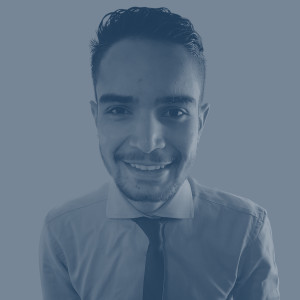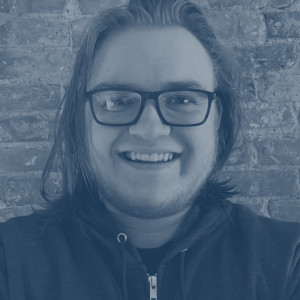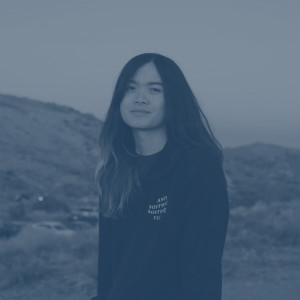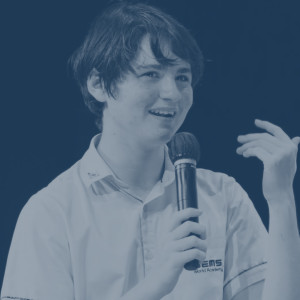Genevieve Chin, 18
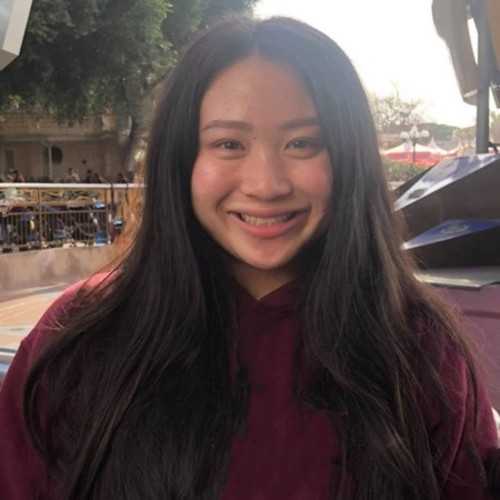
Genevieve got her first taste of the hacker community in the UCLA Ackerman ballroom. After stumbling across the sign-up page for Hackademia on Facebook, she saw an exciting new path to explore her fascination with math and science. After a little convincing, she was at her first hackathon. As she sat at a ballroom table, she started to get worried that her absolute lack of coding experience would stop her from belonging, but it only took a few people sitting at her table to make the whole thing feel accessible again.
With these new friends, she had a team that would help her with her first lines of code. They came up with a project idea: a website and app that could give users a medical diagnosis based on the input of their symptoms. They even won the Best App prize as well as Second Place Overall. After all of their hard work, Genevieve was glad that she stuck it out on her first hackathon, and not just because of the free bagels — the excitement of it all was worth it and has kept her going in the hacker community.
The hacker community didn’t just help her overcome professional obstacles, but personal ones too. As a child, Genevieve had speech and language delays, something that affected her throughout her youth, even with speech therapy. The self-consciousness that she felt made it hard to feel sociable. Luckily, peers such as those that took the time to just sit at the table with Genevieve changed her viewpoint on being sociable. The collaboration of building projects and organizing projects has helped her to improve her speaking skills as well as get rid of those anxieties. She’s beyond grateful that the community surrounding her passion stimulates her mentally and socially. Confidence in her speech, something she didn’t see as a realistic goal, quickly became attainable.
Hacking has even become a family affair for Genevieve. She and her younger sister worked together at Data Day Grind hackathon to build a website with the goal of providing a resource during quarantine. She built a user interface, but it was one of her first times trying to build a website, which was a great opportunity to learn HTML, CSS and JavaScript. She experimented with UiPath Studio X’s Data Extraction tool to acquire job listings, and also produced a data visualization of COVID-19 cases. Being able to have such an extensive learning opportunity alongside her sister made this her favorite project to date.
As a female in STEM, Genevieve has also felt the benefit of a general confidence boost. She didn’t grow up learning coding, but attending hackathons made her extremely motivated to learn. Her peers encouraged her to apply for awards that she didn’t feel qualified for which has led to awards such as the National Honorable Mention for Aspirations in Computing by the National Center for Women and Information Technology. Now she knows that taking that leap, even when she may not feel qualified, is always worth it.
Of the three hackathons Genevieve has helped organize, two of them were virtual. The rise of virtual hackathons has allowed her to interact with incredible people from all over the world and in turn, gain a broader perspective on the diverse groups of people that share the same passion for technology as herself. The third was an in-person event, Hack SoCal 2019 — one of the first in-person high school hackathons of Southern California, where there isn’t widespread access to technological education. Helloo Hacks and AI Hacks II were the two virtual events that she took part in. Her working positions were put to good use as she encouraged women to join the events in order to bridge the gender gap in technology that currently exists in the hacker landscape and shared the opportunities that she was given that meant so much to her in the past.
The ability to take part in virtual events has given her the access to technology education that she is unable to receive in her local community. Thanks to these new opportunities, she discovered the Built by Girls Mentorship program, Girls Who Code, Kode With Klossy and a CodeLabs summer internship. The Built By Girls Mentorship program has been an incredibly formative experience for Genevieve. Her first mentorship match was with a start-up Creative Director and through her sessions with them, she learned how many career opportunities were involved in the tech industry beyond programmers. Because the match was so enjoyable, she pursued other mentorship opportunities, which gave her experience with design, business and computing specializations from other women in tech. Each shared with her a similar message: the best innovators are experts who also pursue learning outside their fields.
This advice was different from the idea of specialization being the only key to success that Genevieve had believed for so long. She now understood that in order to take on the world’s issues using technology, she’d have to take risks and explore different paths. Genevieve explored data visualization, design, and the intersection of ethics, privacy, policy and technological innovation with this new multidisciplinary mindset. She found that this helped her grow creatively, and as a result her curiosity has advanced her problem-solving capabilities in ways she could not expect.
Developing human-centered products in an ethical manner is important to her and she is going to uphold this curiosity as she continues to explore her career path through college. After working in the technology industry post-college, she hopes to pursue government work to create and reform public policy related to data ethics & privacy and education. Even if this is not where she ends up , she knows the skills of ideation and collaboration that she’s picked up will help her to amplify the importance of these morals among her peers. This is what will help her feel that she’s making a contribution to the community.
Since Hack SoCal2019, it has been important to Genevieve to bring the same passion she feels for her branch of study to her local area of Los Angeles, where many schools don’t have computer science curriculum or are located in underserved communities. All that she’s learned from others over the years, she puts into the work to introduce more and more students to technology, like a coding workshop series she spearheaded with The Los Angeles Public Library System. Genevieve planned and manned the entire series, covering how business, programming and design factors overlapped to produce useful websites.
Already, she has been able to emphasize an interdisciplinary approach to learning in her community. Professionals from tech start-ups, as well as from major companies like Apple and Tesla, joined the workshops to help students recognize just how much went into the tech industry beyond software development. Genevieve is immensely grateful for her experience with hackathons, and she hopes to use all that she learned from them to continue this form of outreach into the future.
Quick Facts
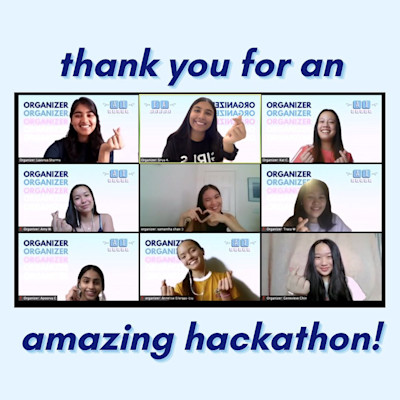
Genevieve Chin, 18

Genevieve got her first taste of the hacker community in the UCLA Ackerman ballroom. After stumbling across the sign-up page for Hackademia on Facebook, she saw an exciting new path to explore her fascination with math and science. After a little convincing, she was at her first hackathon. As she sat at a ballroom table, she started to get worried that her absolute lack of coding experience would stop her from belonging, but it only took a few people sitting at her table to make the whole thing feel accessible again.
With these new friends, she had a team that would help her with her first lines of code. They came up with a project idea: a website and app that could give users a medical diagnosis based on the input of their symptoms. They even won the Best App prize as well as Second Place Overall. After all of their hard work, Genevieve was glad that she stuck it out on her first hackathon, and not just because of the free bagels — the excitement of it all was worth it and has kept her going in the hacker community.
The hacker community didn’t just help her overcome professional obstacles, but personal ones too. As a child, Genevieve had speech and language delays, something that affected her throughout her youth, even with speech therapy. The self-consciousness that she felt made it hard to feel sociable. Luckily, peers such as those that took the time to just sit at the table with Genevieve changed her viewpoint on being sociable. The collaboration of building projects and organizing projects has helped her to improve her speaking skills as well as get rid of those anxieties. She’s beyond grateful that the community surrounding her passion stimulates her mentally and socially. Confidence in her speech, something she didn’t see as a realistic goal, quickly became attainable.
Hacking has even become a family affair for Genevieve. She and her younger sister worked together at Data Day Grind hackathon to build a website with the goal of providing a resource during quarantine. She built a user interface, but it was one of her first times trying to build a website, which was a great opportunity to learn HTML, CSS and JavaScript. She experimented with UiPath Studio X’s Data Extraction tool to acquire job listings, and also produced a data visualization of COVID-19 cases. Being able to have such an extensive learning opportunity alongside her sister made this her favorite project to date.
As a female in STEM, Genevieve has also felt the benefit of a general confidence boost. She didn’t grow up learning coding, but attending hackathons made her extremely motivated to learn. Her peers encouraged her to apply for awards that she didn’t feel qualified for which has led to awards such as the National Honorable Mention for Aspirations in Computing by the National Center for Women and Information Technology. Now she knows that taking that leap, even when she may not feel qualified, is always worth it.
Of the three hackathons Genevieve has helped organize, two of them were virtual. The rise of virtual hackathons has allowed her to interact with incredible people from all over the world and in turn, gain a broader perspective on the diverse groups of people that share the same passion for technology as herself. The third was an in-person event, Hack SoCal 2019 — one of the first in-person high school hackathons of Southern California, where there isn’t widespread access to technological education. Helloo Hacks and AI Hacks II were the two virtual events that she took part in. Her working positions were put to good use as she encouraged women to join the events in order to bridge the gender gap in technology that currently exists in the hacker landscape and shared the opportunities that she was given that meant so much to her in the past.
The ability to take part in virtual events has given her the access to technology education that she is unable to receive in her local community. Thanks to these new opportunities, she discovered the Built by Girls Mentorship program, Girls Who Code, Kode With Klossy and a CodeLabs summer internship. The Built By Girls Mentorship program has been an incredibly formative experience for Genevieve. Her first mentorship match was with a start-up Creative Director and through her sessions with them, she learned how many career opportunities were involved in the tech industry beyond programmers. Because the match was so enjoyable, she pursued other mentorship opportunities, which gave her experience with design, business and computing specializations from other women in tech. Each shared with her a similar message: the best innovators are experts who also pursue learning outside their fields.
This advice was different from the idea of specialization being the only key to success that Genevieve had believed for so long. She now understood that in order to take on the world’s issues using technology, she’d have to take risks and explore different paths. Genevieve explored data visualization, design, and the intersection of ethics, privacy, policy and technological innovation with this new multidisciplinary mindset. She found that this helped her grow creatively, and as a result her curiosity has advanced her problem-solving capabilities in ways she could not expect.
Developing human-centered products in an ethical manner is important to her and she is going to uphold this curiosity as she continues to explore her career path through college. After working in the technology industry post-college, she hopes to pursue government work to create and reform public policy related to data ethics & privacy and education. Even if this is not where she ends up , she knows the skills of ideation and collaboration that she’s picked up will help her to amplify the importance of these morals among her peers. This is what will help her feel that she’s making a contribution to the community.
Since Hack SoCal2019, it has been important to Genevieve to bring the same passion she feels for her branch of study to her local area of Los Angeles, where many schools don’t have computer science curriculum or are located in underserved communities. All that she’s learned from others over the years, she puts into the work to introduce more and more students to technology, like a coding workshop series she spearheaded with The Los Angeles Public Library System. Genevieve planned and manned the entire series, covering how business, programming and design factors overlapped to produce useful websites.
Already, she has been able to emphasize an interdisciplinary approach to learning in her community. Professionals from tech start-ups, as well as from major companies like Apple and Tesla, joined the workshops to help students recognize just how much went into the tech industry beyond software development. Genevieve is immensely grateful for her experience with hackathons, and she hopes to use all that she learned from them to continue this form of outreach into the future.
Quick Facts

